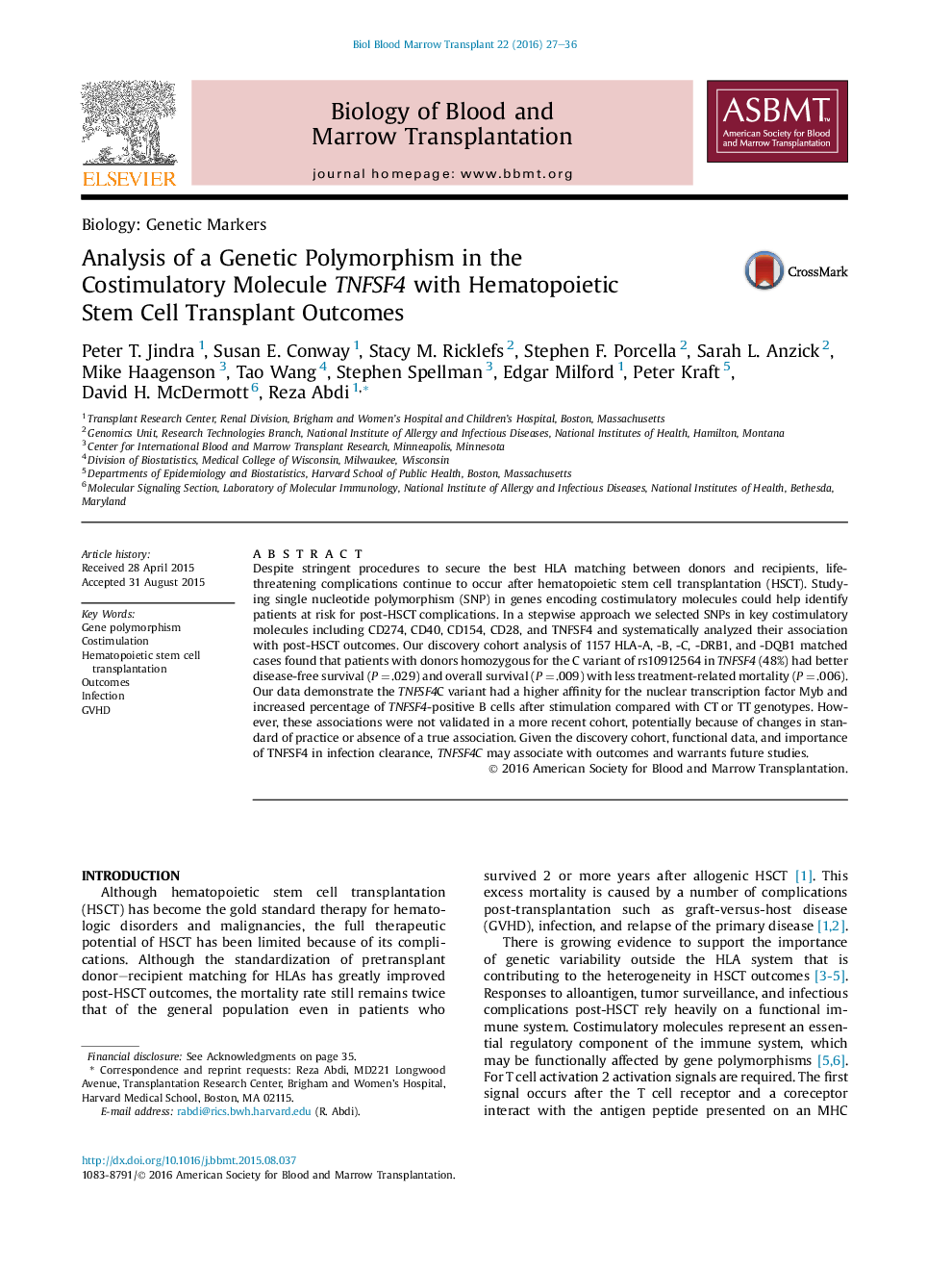| Article ID | Journal | Published Year | Pages | File Type |
|---|---|---|---|---|
| 2101403 | Biology of Blood and Marrow Transplantation | 2016 | 10 Pages |
•Analysis of SNPs in costimulatory molecules effect HSCT outcomes.•A total of 2345 donor–recipient pairs from two cohorts were included in this study.•Potential improved patient outcomes with TNFSF4 rs10912564CC genotyped donors.•The C variant of SNP rs10912564 creates a binding site for Myb compared with T.
Despite stringent procedures to secure the best HLA matching between donors and recipients, life-threatening complications continue to occur after hematopoietic stem cell transplantation (HSCT). Studying single nucleotide polymorphism (SNP) in genes encoding costimulatory molecules could help identify patients at risk for post-HSCT complications. In a stepwise approach we selected SNPs in key costimulatory molecules including CD274, CD40, CD154, CD28, and TNFSF4 and systematically analyzed their association with post-HSCT outcomes. Our discovery cohort analysis of 1157 HLA-A, -B, -C, -DRB1, and -DQB1 matched cases found that patients with donors homozygous for the C variant of rs10912564 in TNFSF4 (48%) had better disease-free survival (P = .029) and overall survival (P = .009) with less treatment-related mortality (P = .006). Our data demonstrate the TNFSF4C variant had a higher affinity for the nuclear transcription factor Myb and increased percentage of TNFSF4-positive B cells after stimulation compared with CT or TT genotypes. However, these associations were not validated in a more recent cohort, potentially because of changes in standard of practice or absence of a true association. Given the discovery cohort, functional data, and importance of TNFSF4 in infection clearance, TNFSF4C may associate with outcomes and warrants future studies.
